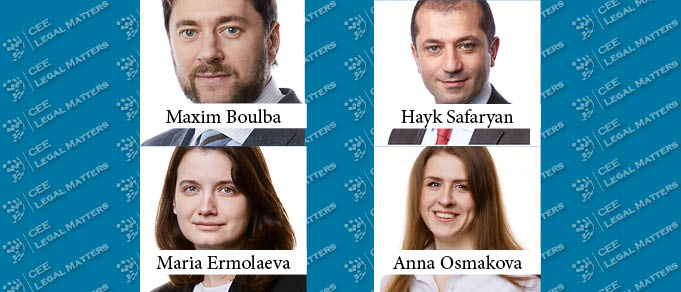The existing ban on the state procurement of foreign industrial goods has been generalised under a Russian Government Decree* which came into force on 1 May 2020.
For certain groups of goods to be admitted for public procurement in Russia, the Decree establishes additional requirements over and above the confirmation that these goods have been produced in or originate from Russia or a Eurasian Economic Union member state.
Import substitution policy: new restrictions
In general, the Decree, although of a technical nature, is a logical step in the consistent implementation of the import substitution strategy. It is meant to encourage manufacturers to localise production in Russia. At the same time, as practice shows, in many cases, state purchasers have recourse to exceptions for procuring foreign goods despite the existing bans.
So, the Decree contains an extensive list of 125 types of goods to which restrictions apply. This ranges from clothes and shoes to telecommunications equipment and helicopters. Moreover, since 1 July 2020, the Decree also applies to automotive products and vehicles (e.g. cars and trucks).
A series of exceptions in the Decree provides state purchasers with room to manoeuvre. In particular, this ban does not apply to the purchase of industrial goods which are not produced in Russia. Nor does it apply to the purchase of one single good worth less than RUB 100,000 (EUR 1,231) or a set of goods with an aggregate total value of less than RUB 1m (EUR 12,310).
Finally, the ban on the purchase of foreign-made industrial goods does not apply when it is necessary to ensure the interaction of products with goods that the purchaser already uses (i.e. when the goods to be purchased are incompatible with goods bearing other trademarks), and when purchasing spare parts and consumables for machinery and equipment.
Determination of the country of origin of imported goods
To be authorised to take part in tenders for state or municipal procurement, a supplier must confirm that the goods originated or were produced in Russia or a Eurasian Economic Union member state. The relevant certificate and the confirmation that the goods are included in the Register of Industrial Products of the Russian Ministry of Industry and Trade will act as confirmation of the country of origin of the goods.
For some types of goods, further requirements are provided. In addition to confirming the production country and the country of origin of the goods, it is necessary to use components, raw materials or services that originate from Russia or a Eurasian Economic Union member state. For example, such requirements are provided for the production of certain types of automotive products, some types of products in the special engineering industry, as well as compressors and refrigeration equipment.
In practice, confirming the country of origin of a product can often be complicated (e.g. for goods containing components manufactured in different countries or when the production processes of a single product take place in several countries). In such cases, it is necessary to resort to a comprehensive analysis, which establishes the degree to which a given good was processed in a particular country and the effect of foreign components on its final production cost.
*in Russian
By Maxim Boulba, Partner, Hayk Safaryan, Partner, Maria Ermolaeva, Associate, and Anna Osmakova, Associate, CMS Russia


